Resilience and Female Empowerment: The Story of Naudi in the Bajo Cauca Region of Colombia
Gender Equity in Infrastructure Projects
Every section of a tertiary road paved, every job created, and every community empowered are firm steps towards building peace and resilience. The transformation of Luis Cano - a small rural district of the municipality of El Bagre, in the northern region of Colombia - is not only measured in yards of road built or maintained, but in quality of life and in the construction of a fairer and more prosperous future for local communities.
THE HEROINE OF THIS STORY
The heroine is Naudi Rivera, a-32-year-old woman who has lived 15 years in the Luis Cano area. Naudi’s commitment and leadership have been fundamental in the implementation of a contract signed between the Community Action Organization (CAO) of Juan Cano with INVIAS – the Colombian national road institute - to improve a segment of 148 yards of tertiary road.

Thanks to this contract, in which the local community took ownership of the different stages of the project: construction, surveillance, administration, socialization, and accountability, they managed to succeed by not only improving accessibility and connectivity of the Luis Cano area, but also by creating local jobs and providing more opportunities for economic local development in a region affected by Colombia’s long-term conflict. Naudi's active participation in a training program called Learning to Build Pathways for Peace allowed her to acquire hard skills needed to undertake infrastructure projects and provided her with a platform to amplify her voice as a leader in her community. Naudi is a clear example of how female empowerment can transform individual lives as well as entire communities.
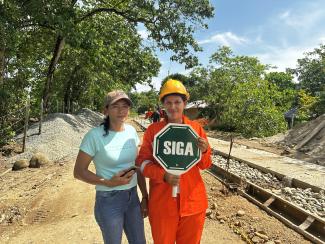
Female Empowerment and Peacebuilding
Female empowerment is important for sustainable development and peacebuilding. Based on this premise, Naudi Rivera became an inspiring example for other women in her region. Her active participation in infrastructure projects fostered improvements in local transit, more opportunities for economic local development, better access in service provision for health and education; but also, an outstanding promotion on gender equity and social cohesion in a context where traditional masculinities and manly behavior prevail.
Naudi's empowerment not only has been critical in achieving her personal goals, but also in inspiring other women in her own and nearby communities. Her story shows that sustainable development and lasting peace are more likely to happen when work is done together on a gender-equity basis.
Naudi improved her skills through the "Learning to Build Pathways for Peace" training program which was instrumental in strengthening technical, administrative, and operative capacities of 90 OACs; bringing them tailored tools to actively engage in the execution of infrastructure projects. The training expanded the hard and soft skills of participants and consolidated the bonds of collaboration within the community. The strength of the community and female empowerment are intertwined to build a better future - with more equity.
USAID’s Responsive Governance Activity has been a convening force in this process, promoting the active participation of women in decision-making and in the construction of public policies. This intersectoral approach aims at improving infrastructure and economic development and promoting inclusion and equal opportunities for all members of the community.
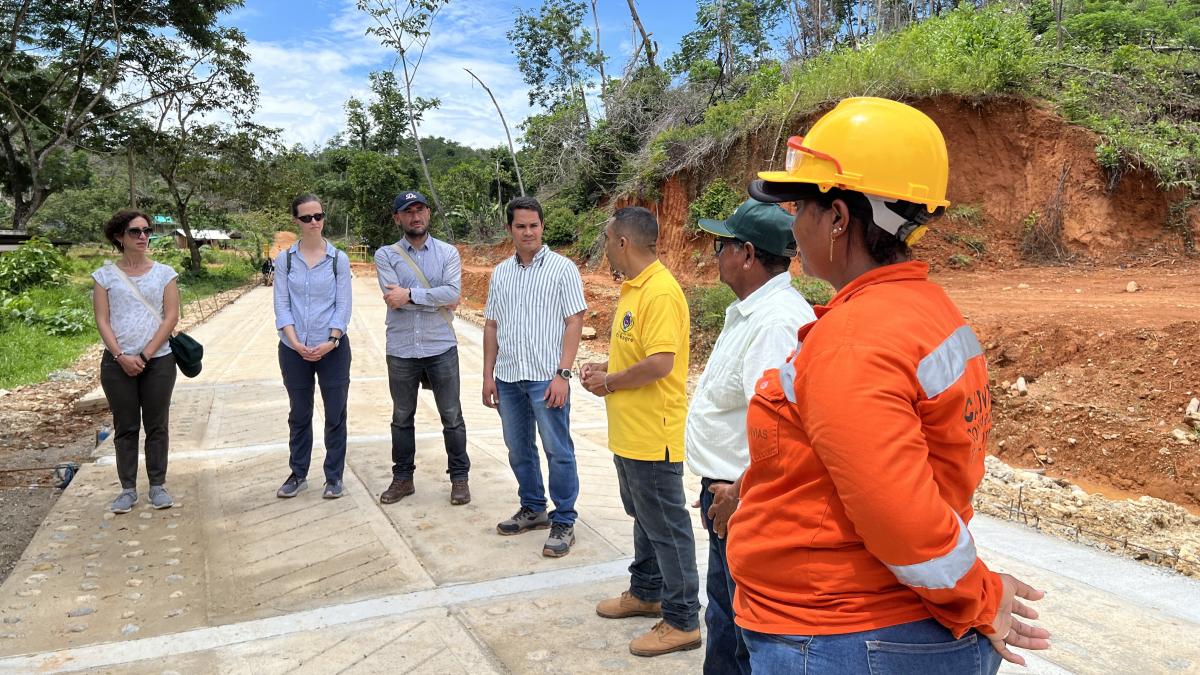
Primary Text
“They (the training sessions) gave us this great opportunity that the OACs can hire. We are going to do it well, so that the other neighboring organizations see and believe that they also can.”Secondary TextNaudi proudly says.
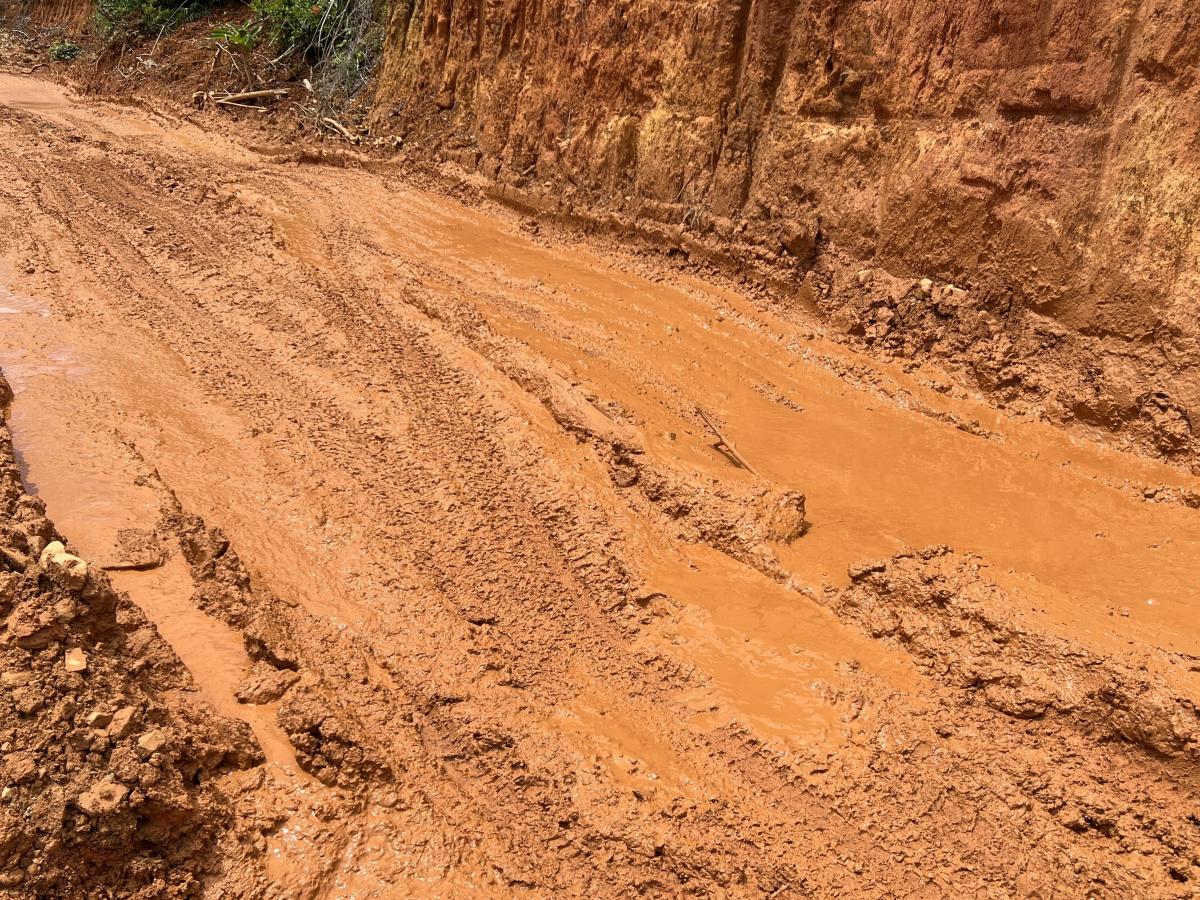
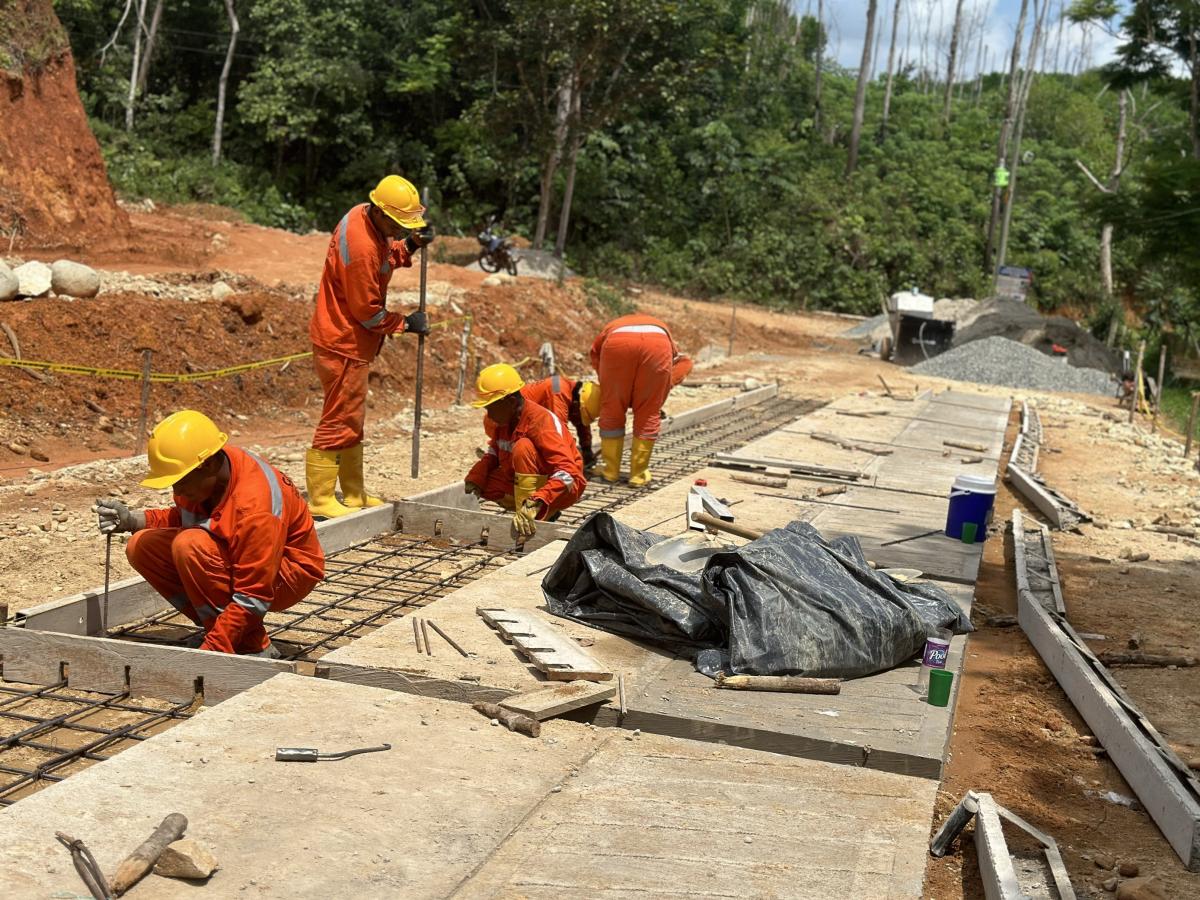
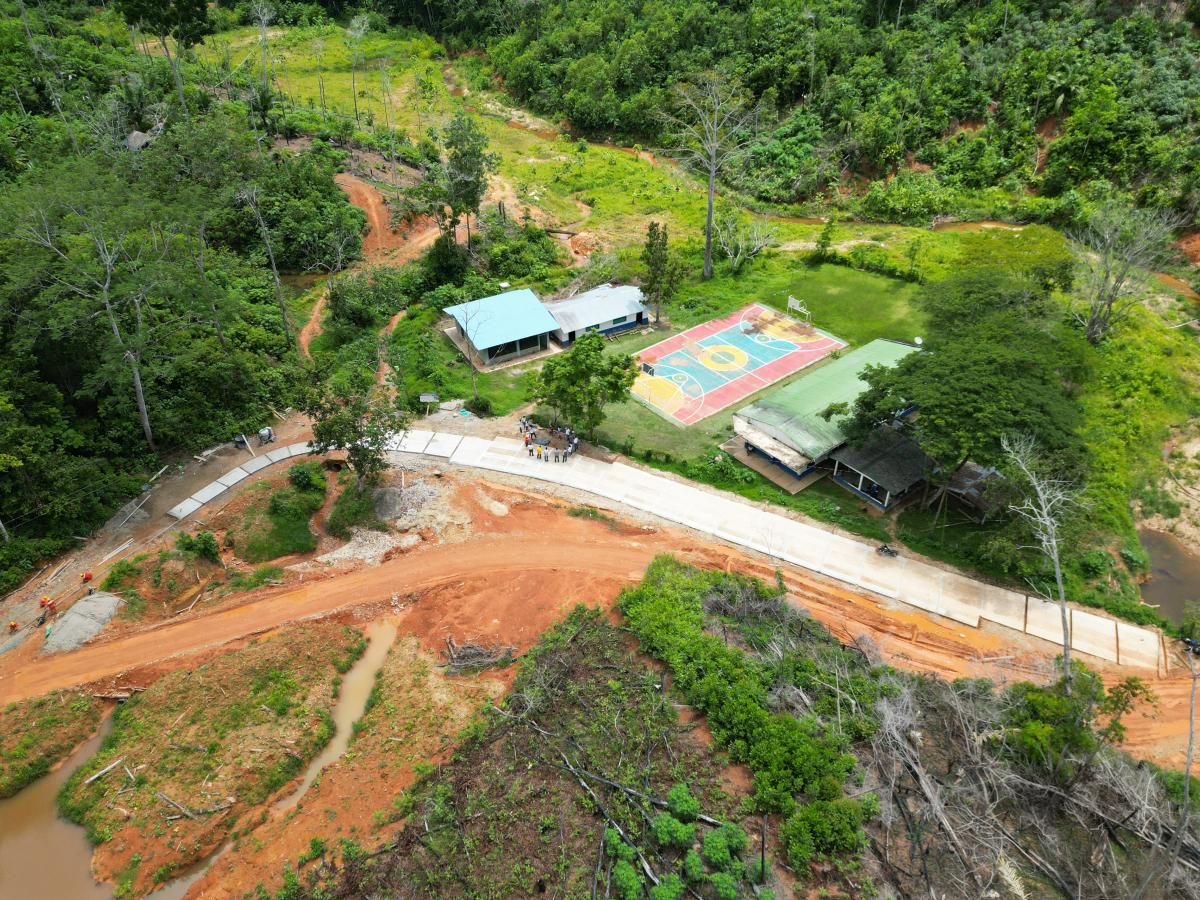
Impact of infrastructure on peace and development
Each yard paved is a testament of the community’s strength and resilience. The contract between INVIAS and the CAO of Luis Cano, worth USD$50.000 to improve 148 yards of rural road, was possible thanks to the support of USAID and its allies in promoting sustainable and equitable development in the Bajo Cauca region.
The lack of basic infrastructure and the scarce state presence in rural areas, such as in the Bajo Cauca region, impacted negatively the timely and effective access to essential public services, making it difficult for local communities to integrate themselves into regional development. In this context, the contract between CAO of Luis Cano and INVIAS addressed an urgent need for infrastructure and promoted economic development by generating local jobs and improving living conditions for communities. Additionally, it contributed to inclusive development, allowing women and vulnerable groups to have better access to goods and services.
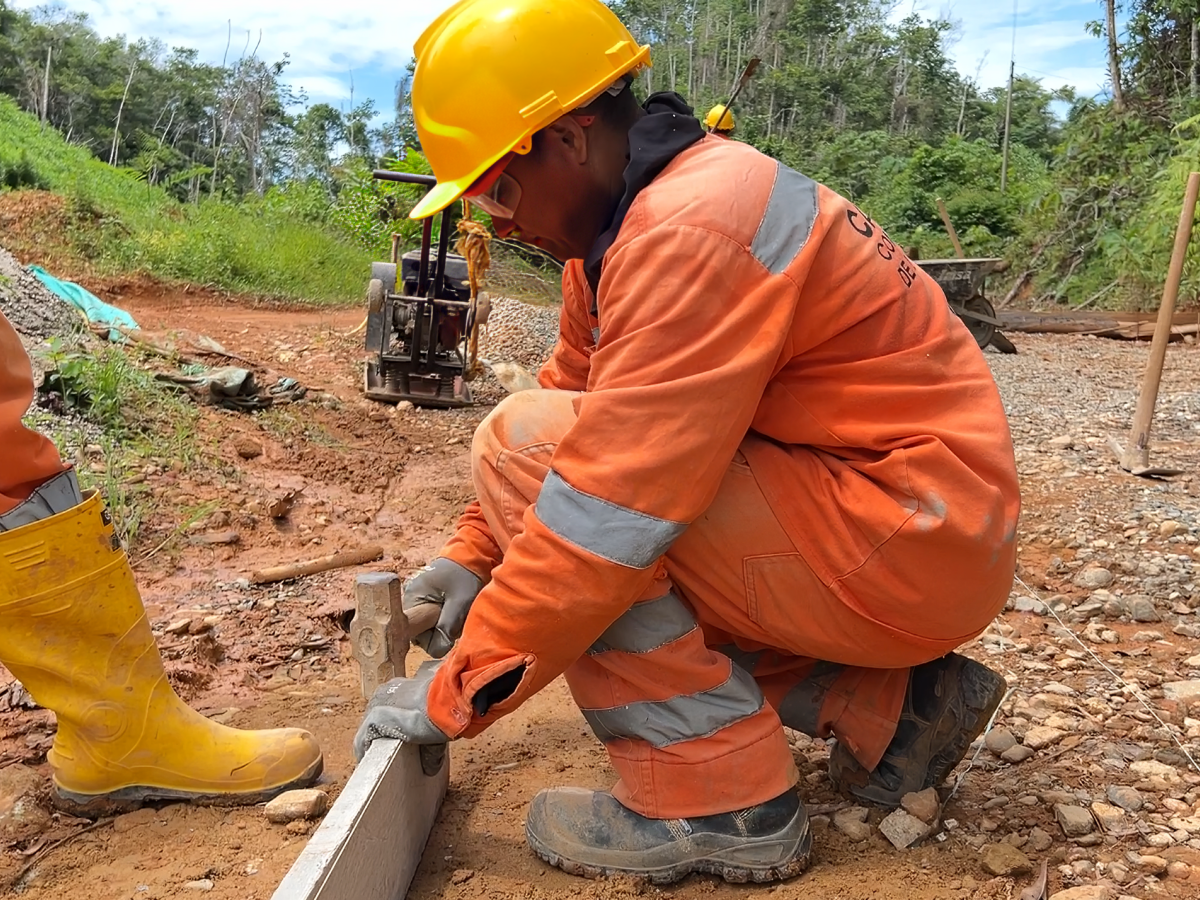
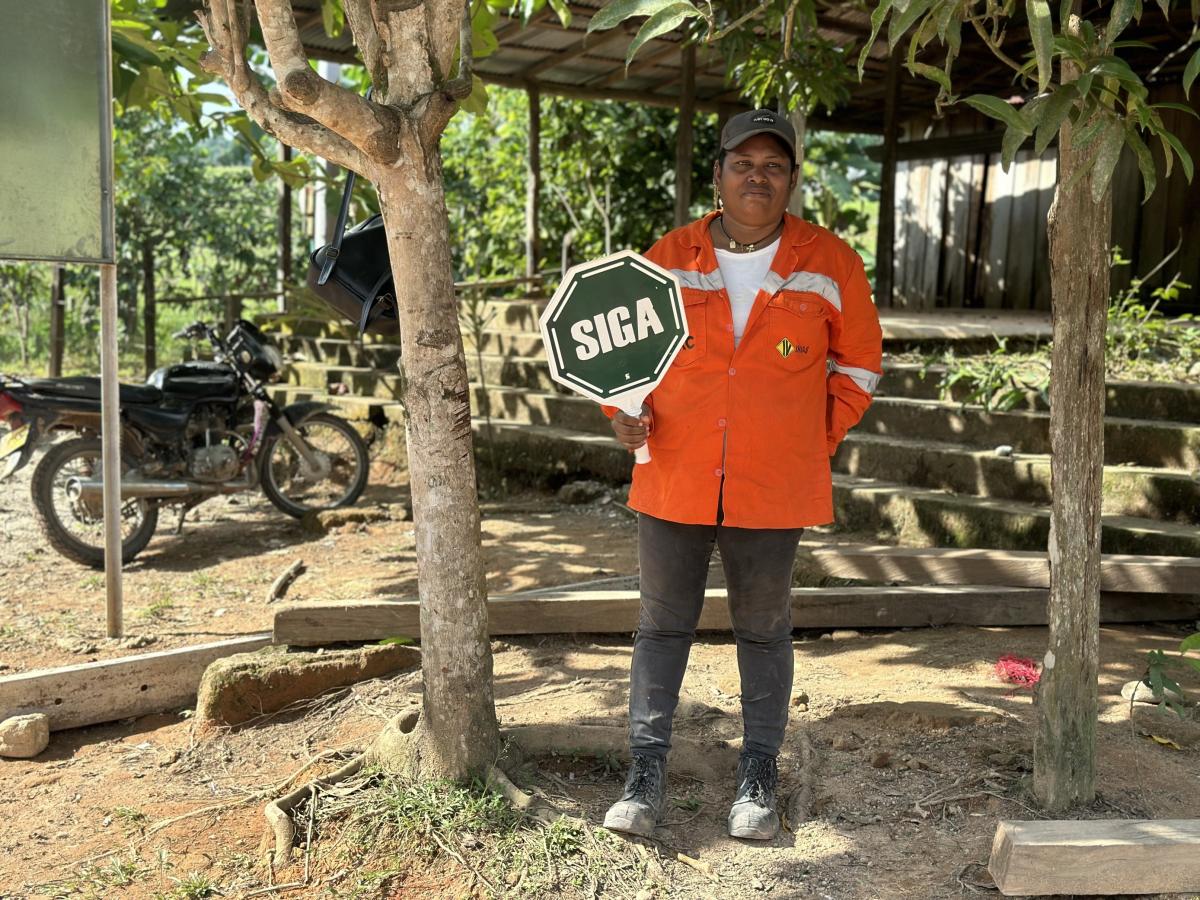
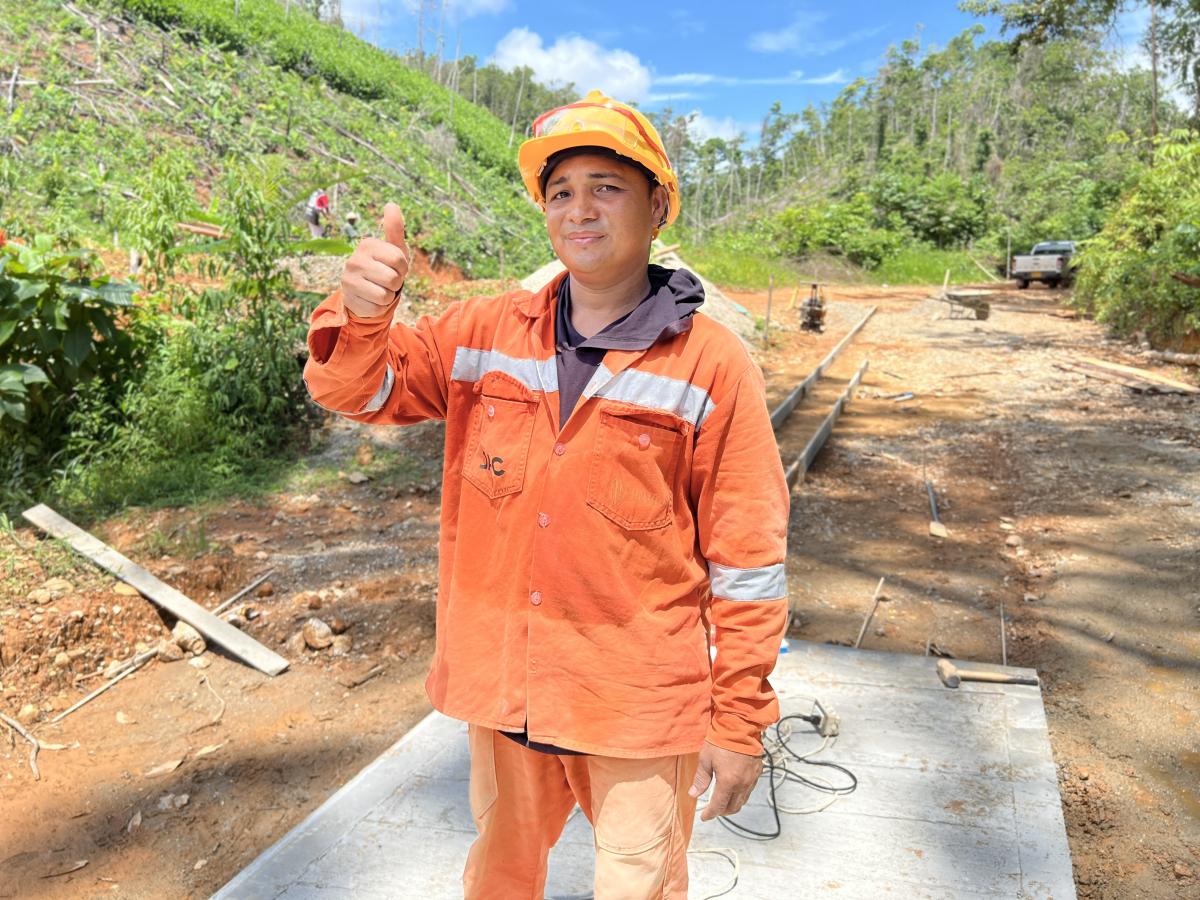
A Future for Hope and Progress
Naudi and the community of Luis Cano’s histories are testimonies of the transformative capacity of inter-institutional cooperation and joint work. The support of USAID and its allies in promoting better governance and gender equity are marking the path towards sustainable development.
Every section of a tertiary road paved, every job created, and every community empowered are firm steps towards building peace and resilience. The transformation of Luis Cano is not only measured in yards of road built or maintained, but in quality of life and in the construction of a fairer and more prosperous future for its inhabitants.

